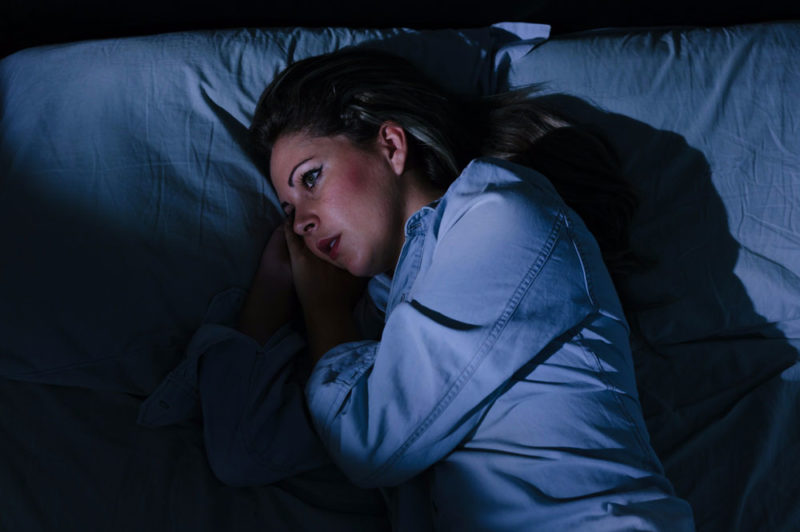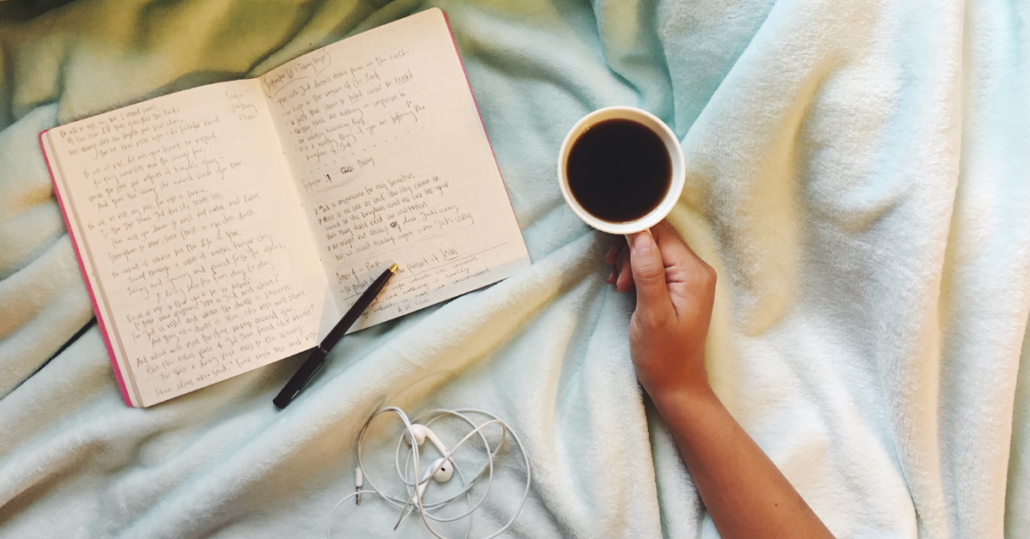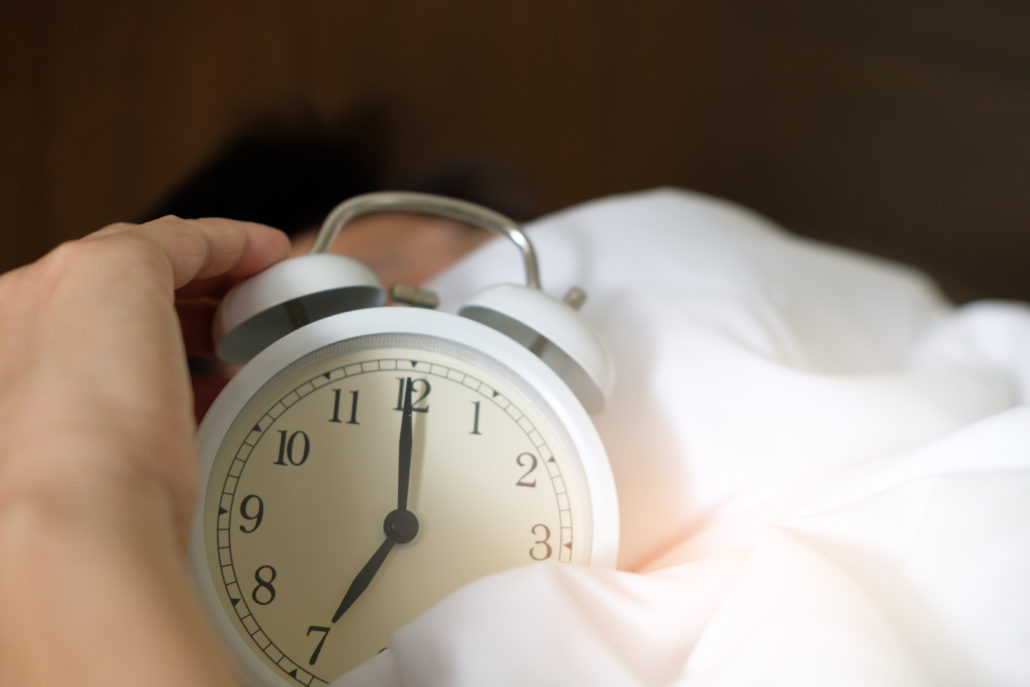Alcohol and Sleep
Alcohol is traditionally known to have a relaxing effect. However, persons who consume alcohol in excessive amounts suffer from poor sleep quality and patients with alcohol use disorders commonly report insomnia. Several studies on sleep have reported that poor-quality sleep leads to increased stress, fatigue, and mood disorders and raises risks of obesity, metabolic syndrome, and cardiovascular disease [1]. Conversely, many diseases also affect sleep quality. Depression, anxiety, musculoskeletal disorders, obesity, restless leg syndrome, and other chronic diseases are all known to cause sleep disorders.
Alcohol is a central nervous system (CNS) depressant that causes brain activity to slow down. Alcohol has sedative effects that can induce feelings of sleepiness and relaxation. However, the consumption of alcohol – especially in excess – has been linked to poor sleep quality and duration. People with alcohol use disorders commonly experience insomnia symptoms. Alcohol may seem to be helping you to sleep, as it helps induce sleep, but overall it is more disruptive to sleep, particularly in the second half of the night. Alcohol also suppresses breathing and can precipitate sleep apnea or pauses in breathing that happen throughout the night.


Get Your Life Back
Find Hope & Recovery. Get Safe Comfortable Detox, Addiction Rehab & Mental Health Dual Diagnosis High-Quality Care at the We Level Up Treatment Centers Network.
Hotline (877) 378-4154How Does Alcohol Affect Sleep?
After someone consumes alcohol, the substance is absorbed from the stomach and small intestine into their bloodstream. Enzymes in the liver eventually metabolize the alcohol, but excess alcohol will continue to circulate throughout the body because this is a fairly slow process. The effects of alcohol largely depend on the person. Important factors include the amount of alcohol and how quickly it is consumed, as well as the person’s age, body type, sex, and physical shape.
The relationship between alcohol and sleep has been studied since the 1930s, yet many aspects of this relationship are still unknown. Research has shown sleepers who drink large amounts of alcohol before going to bed are often prone to delayed sleep onset, meaning they need more time to fall asleep. As liver enzymes metabolize the alcohol during their night and the blood alcohol level decreases, these individuals are also more likely to experience sleep disruptions and decreases in sleep quality.
To understand how alcohol impacts sleep, it’s important to discuss different stages of the human sleep cycle.
A normal sleep cycle consists of four different stages: three non-rapid eye movement (NREM) stages and one rapid eye movement (REM) stage.
- Stage 1 (NREM): This initial stage is essentially the transition period between wakefulness and sleep, during which the body will begin to shut down. The sleeper’s heartbeat, breathing, and eye movements start to slow down, and their muscles will relax. Brain activity also begins to decrease. This phase is also known as light sleep.
- Stage 2 (NREM): The sleeper’s heartbeat and breathing rates continue to slow down as they progress toward deeper sleep. Their body temperature will also decrease, and the eyes will become still. Stage 2 is usually the longest of the four sleep cycle stages.
- Stages 3 (NREM): Heartbeat, breathing rates, and brain activity all reach their lowest levels of the sleep cycle. Eye movements cease, and the muscles are relaxed. This stage is known as slow-wave sleep.
- REM: REM sleep kicks in about 90 minutes after the individual initially falls asleep. Eye movements will restart and the sleeper’s breathing rate and heartbeat will quicken. Dreaming mostly takes place during REM sleep. This stage is also thought to play a role in memory consolidation.
These four NREM and REM stages repeat in a cyclical fashion throughout the night. Each cycle should last roughly 90-120 minutes, resulting in four to five cycles for every eight hours of sleep. NREM slow-wave sleep is dominant for the first one or two cycles, whereas REM sleep typically lasts no longer than 10 minutes. For later cycles, these roles will flip and REM will become more dominant, sometimes lasting 40 minutes or longer without interruption; NREM sleep will essentially cease during these cycles.
Drinking alcohol before bed can add to the suppression of REM sleep during the first two cycles. Since alcohol is a sedative, sleep onset is often shorter for drinkers and some fall into a deep sleep rather quickly. As the night progresses, this can create an imbalance between slow-wave sleep and REM sleep, resulting in less of the latter and more of the former. This decreases overall sleep quality, resulting in shorter sleep duration and more sleep disruptions.
Get Help. Get Better. Get Your Life Back.
Searching for Accredited Drug & Alcohol Rehab Centers Near You? Or Mental Health Support?
Even if you have failed previously, relapsed, or are in a difficult crisis, we stand ready to support you. Our trusted behavioral health specialists will not give up on you. Call us when you feel ready or want someone to speak to about therapy alternatives to change your life. Even if we cannot assist you, we will lead you wherever you can get support. There is no obligation. Call our hotline today.
FREE Addiction Hotline – Call 24/7Alcohol and Sleep Disorders
Despite an initial sedative effect, alcohol disrupts sleep persistently and should not be used as a sleeping aid. Nocturnal withdrawal symptoms may lead to an increased wakefulness duration and tachycardia and sweating in the second half of the night [2]. Alcohol can exacerbate primary sleep disturbances such as sleep apnea and nocturnal myoclonus, and thereby contribute to excessive daytime sleepiness.

The sleep of alcoholic patients is characterized by increased sleep latency, reduced sleep efficiency, total sleep time, slow-wave, and non-REM sleep. Even during abstinence, the changes in sleep architecture can persist for months or years and might contribute to relapse into alcoholism. The use of benzodiazepines or other hypnotics to treat alcohol-related sleep disturbances is not recommended.
Disturbed sleep is a common complaint in medical settings. Insomnia has been associated with subsequent morbidity and mortality, in addition to causing or worsening somatic symptoms that contribute to the quality-of-life decline. Chronic insomnia is generally defined as difficulty initiating or maintaining sleep for a period longer than three weeks. Insomnia frequently has a mix of contributing causes, and clinicians need to assess psychological (e.g., depression and anxiety), medical (e.g., pain and obstructive sleep apnea), and lifestyle-related (e.g., caffeine consumption) risk factors. Substance use problems underlie approximately 10–15% of chronic insomnia
Alcohol and Night Time Hormonal Function
The sleep-wake cycle is organized in a circadian rhythm. Circadian rhythms are physical, mental, and behavioral changes that follow a 24-hour cycle. These natural processes respond primarily to light and dark and affect most living things, including animals, plants, and microbes. Various hormones secreted by the pituitary gland in the brain also show circadian variations, with secretory peaks occurring during the usual sleep period. Some of these hormones are linked to sleep–if sleep is delayed, their secretory peaks also are delayed.
A number of pituitary hormone secretions are at their maximum during sleep. This is particularly true for the human growth hormone, which is secreted by the pituitary gland and reaches a peak during non-REM sleep. However, studies show that when people drink alcohol before sleeping, growth hormone secretions decrease, despite the fact that drinking causes an increase in non-REM sleep. In fact, researchers have observed that the more someone drinks, the less growth hormone are secreted.
Comfortable Facilities & Amenities
High-Quality Addiction & Mental Health Rehabilitation Treatment
Rehab Centers TourRenowned Addiction Centers. Serene Private Facilities. Inpatient rehab programs vary.
Addiction Helpline (877) 378-4154Proven recovery success experience, backed by a Team w/ History of:
15+
Years of Unified Experience
100s
5-Star Reviews Across Our Centers
10K
Recovery Success Stories Across Our Network
- Low Patient to Therapist Ratio
- Onsite Medical Detox Center
- Comprehensive Dual-Diagnosis Treatment
- Complimentary Family & Alumni Programs
- Coaching, Recovery & Personal Development Events
Why You Should Avoid Alcohol Just Before Bedtime?
It is recommended that alcohol not be consumed in the last four hours before bedtime.
Even though alcohol may help you fall asleep, it interferes with the quality of your sleep. Moreover, it can take one hour for your body to process one serving of alcohol. If you’ve had several drinks, it’s best if your last drink is finished at least several hours before you go to bed.
If you drink alcohol right before bed, you may experience:
- Frequent awakenings
- Night sweats
- Nightmares
- Headaches
If you binge drink or drink large amounts very quickly, you can alter your melatonin levels for up to a week afterward. Melatonin is a hormone that your body makes to help regulate sleep.
If you sleep better when you don’t drink, you might consider stopping alcohol use entirely. However, if you continue to have sleeping difficulties, reach out to a sleep specialist.
It’s important to treat sleep disorders such as insomnia (difficulty falling or staying asleep) or sleep apnea (when breathing stops multiple times a night) if they are present.
What Time of Day is Best to Have Alcohol?
The answer really depends on the person, how much they’re drinking, what they’re drinking, and other lifestyle factors. We’re told not to drink on an empty stomach. That alcohol disrupts our sleep. Not to drink during the day (for health and social reasons). But if we do want to imbibe (and responsibly), is there a good time and a right way to do it?
Alcohol enters your bloodstream through your stomach and small intestine. If your stomach’s empty when you start drinking, the alcohol will quickly enter your bloodstream. So it’s always a good idea to eat before you drink, no matter the time of day. When alcohol is absorbed into the bloodstream too quickly, it can become dangerous and potentially toxic. To head off any potential ill effects from too much alcohol and not enough food. Generally speaking, dinner may be the ideal meal of choice, as it’s usually larger and loaded with carbs, fats, and protein that help to slow down how quickly alcohol is absorbed into the bloodstream.
For sensitive sleepers, there is only bad news, drinkers who partook as early as the late afternoon experienced sleep disruptions. With late afternoon (or happy hour) drinking, as much as six hours before bedtime can disrupt sleep, even though alcohol is no longer in the brain at bedtime. The National Institutes of Health recommends stopping drinking four hours before heading to bed, but this also depends on how much you’ve been drinking. low amounts of alcohol (one to two drinks) had a mild impact on sleep quality. In contrast, higher amounts of alcohol decreased sleep quality by almost 40%.
One bad night of bingeing can also impact the rest of your week’s sleep. If you have a night of heavy boozing (meaning about four or more drinks in about two hours for women or five-plus drinks for men), that can cause your melatonin levels to be out of sorts and impact sleep for up to a week. It can also impact your brain function, heart health, memory, blood sugar regulation, and mood.
World-class, Accredited, 5-Star Reviewed, Effective Addiction & Mental Health Programs. Complete Behavioral Health Inpatient Rehab, Detox plus Co-occuring Disorders Therapy.
CALL (877) 378-4154End the Addiction Pain. End the Emotional Rollercoaster. Get Your Life Back. Start Drug, Alcohol & Dual Diagnosis Mental Health Treatment Now. Get Free No-obligation Guidance by Substance Abuse Specialists Who Understand Addiction & Mental Health Recovery & Know How to Help.
Treatment of the Effects of Alcohol on Sleep
Treating a co-occurring alcohol and sleep disorder without treating someone’s alcohol dependence, and vice versa can mean setting up a potential relapse before treatment has truly started. Rarely is it the desires of alcohol that drive those in recovery to relapse? Rather, the symptoms of alcohol withdrawal take a physical and mental toll on the person quitting which pushes them back. Insomnia is a very treatable disorder and taking the time to treat it can mean the difference between recovery and relapse.
For Alcohol and Insomnia, dual diagnosis is generally recommended. In this approach, both Alcohol and the effects of alcohol on sleep are treated aggressively and concurrently. If you or someone you care about is struggling with alcoholism and the effects of alcohol on sleep, call us today. We Level Up New Jersey addiction treatment center can provide proper evidence-based therapy. Above all, recovering from alcohol abuse, including the effects of alcohol on sleep, does not need to be overwhelming or burdensome.

Experience Transformative Recovery at the We Level Up Treatment Center.
See our authentic success stories. Get inspired. Get the help you deserve.



Start a New Life
Begin with a free call to an addiction & behavioral health treatment advisor. Learn more about our dual-diagnosis programs. The We Level Up treatment center network delivers various recovery programs at each treatment facility. Call to learn more.
- Personalized Care
- Caring Accountable Staff
- Comfortable Amenities
- Licensed & Accredited
- Renowned w/ 5-Star Reviews
